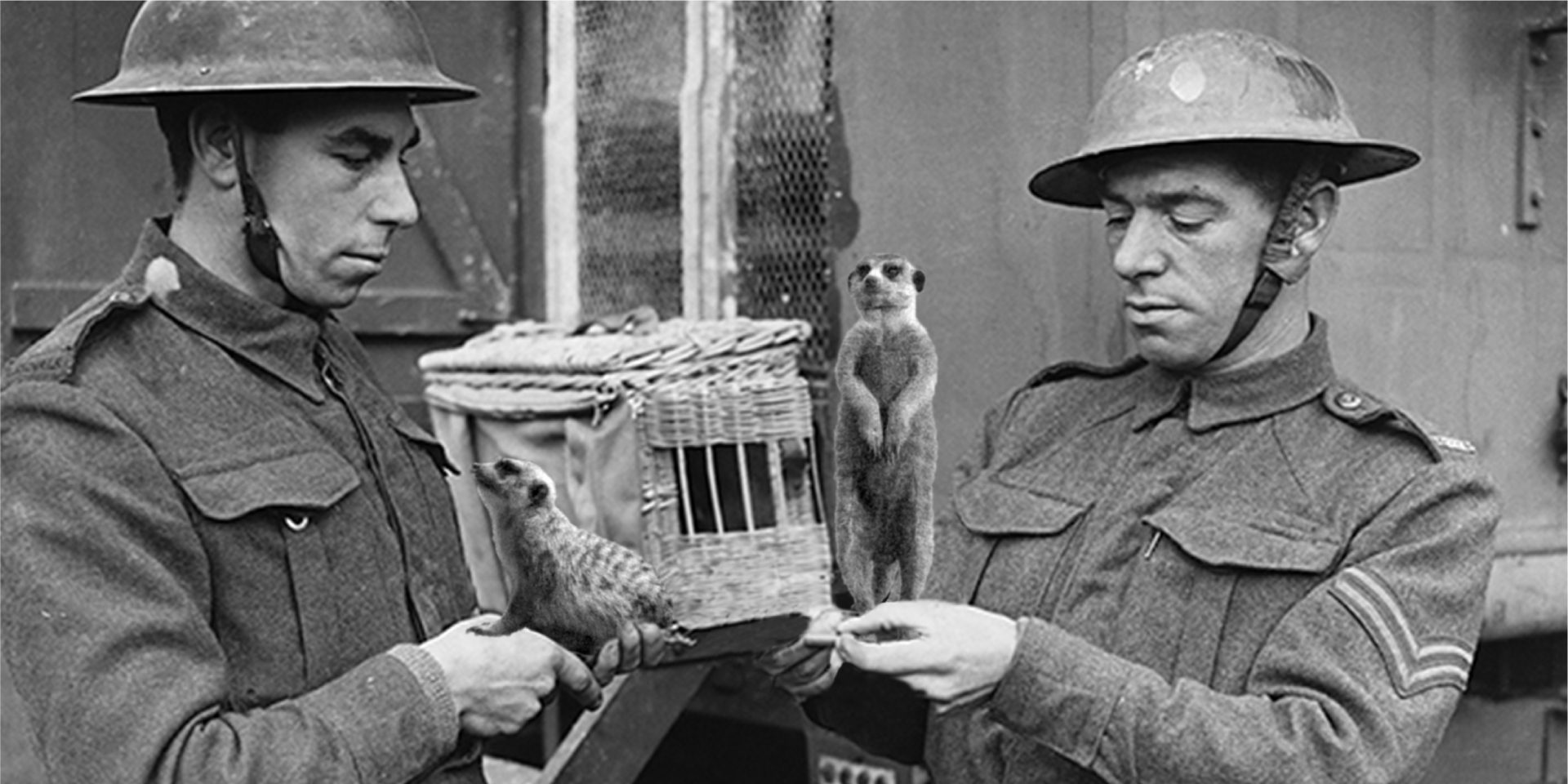Operation Simples: The proposed use of Meerkats to aid escapes of Allied PoWs during World War Two.
Numerous different animal species have been rightly honoured for their devotion to duty and acts of courage during war. Indeed, the founder of the PDSA, Maria Dicken gave her name to a special medal: the Dicken Medal, which is often referred to as the Animal VC, so that such acts could be formerly acknowledged. Recipients of the Dicken Medal include pigeons, horses, dogs, and cats.
However, an unlikely species of animal – the Meerkat also came close to receiving the medal during WWII.
Corporal Bernard Lop was serving with the Green Howards when he was captured during the North Africa campaign and eventually found himself interned in a PoW camp in Italy.
During his transit from North Africa to Italy he ‘acquired’ a Meerkat as a pet, which he subsequently managed to hide on his person and smuggle into the camp in Italy.
It was whilst in this camp that Bernard began to appreciate the digging capabilities of his Meerkat, especially in sandy earth. Bernard was part of the Escape Committee of the camp, and whilst tunnelling out of the camp had been considered, a number of problems presented themselves which had thwarted tunnelling attempts in the past.
Soft sandy soil prone to causing tunnel collapses, a lack of decent digging tools and a lack of manpower were all issues. During the day, most of the Prisoners were out of camp on work detail, so they could only tunnel at night or at weekends. When they were back in camp, many were too exhausted to tunnel as a result of working during the day, coupled with the poor rations that they were receiving from their captors.
Bernard realised that, with a platoon of well-trained and motivated meerkats, digging could take place virtually 24 hours a day. Bernard presented his idea to the other members of the Escape Committee, who gave him permission to proceed with the idea.
With the help of a local Italian resistance aid, Bernard managed to get word back to the military authorities in the UK, and his idea to utilise meerkats to assist PoWs in the digging of tunnels found its way to MI9.
Liaising with London Zoo, a platoon of meerkats was selected from their resident family and intense training began in May 1943. Whilst the meerkats were already proficient at tunnelling, they had to undergo Parachute training, as the only practical way to get them into the camp was to drop them by parachute at night.
After four months of training, the meercats were ready for their mission and a moonless night was identified at the beginning of September when they would be dropped into the camp. However, just before the mission was about to take place, Italy announced that it would surrender to the Allies, signing the surrender document on 8th September.
The Italian Guards that had been guarding the camps disappeared but were replaced by German Guards who rounded Bernard and his fellow Prisoners up and relocated them to Prison Camps located in Germany.
The meerkats went back to London Zoo, where sadly no recognition was given for the specialist military training that they had undertaken.
Jonny Pye, Eden Camp Archivist, comments: “Being housed in the buildings and grounds of a former PoW Camp, our museum does act as a bit of a magnet as far as PoW related memorabilia and information is concerned, and indeed, we probably have the most comprehensive public display relating to Prisoners of War in the world. However, the information provided by Bernard’s widow, Flora I Pol has the potential to provide us with yet another unique exhibit.”


